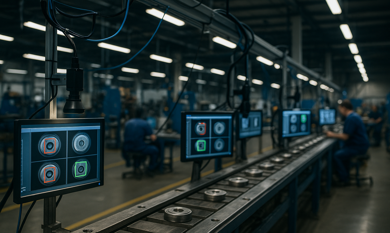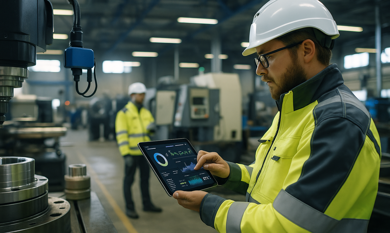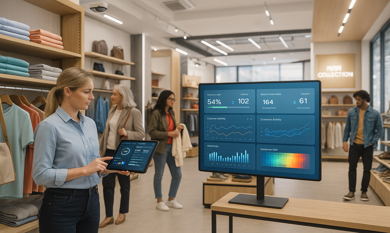As industries rapidly digitize, the healthcare sector is also undergoing significant transformation. The rapid rise of Internet of Things (IoT) technology is reshaping patient care, enabling real-time monitoring, and fostering more proactive healthcare models. Traditional reactive approaches—treating conditions after symptoms arise—are now being replaced by predictive and preventive strategies supported by smart healthcare systems.
IoT healthcare solutions bring together connected medical devices, cloud analytics, and mobile platforms to monitor patient health continuously. This connectivity not only improves outcomes but also reduces the burden on healthcare systems, especially as populations age and chronic conditions become more prevalent.
Challenges in Traditional Healthcare Monitoring
Despite the adoption of electronic health records and telemedicine, many healthcare organizations still struggle with outdated patient monitoring systems. These traditional setups face several limitations:
- Manual monitoring leads to human errors and inconsistent patient data.
- Lack of real-time information can delay critical interventions, especially in emergency scenarios.
- Inefficient data sharing between departments or care providers affects continuity of care.
- Limited patient engagement with their own health metrics reduces long-term wellness outcomes.
Without timely, data-driven insights, healthcare providers often operate in a reactive mode—treating conditions after they escalate rather than preventing them.
How IoT Solves These Challenges
IoT-enabled devices help address the above pain points by providing continuous, real-time insights into a patient’s health. From wearable sensors to remote diagnostic tools, IoT patient monitoring systems enable smarter decisions and faster interventions.
Consider wearable devices that monitor vital signs such as heart rate, glucose levels, or oxygen saturation. These devices instantly alert physicians when abnormal readings are detected, allowing timely intervention. For patients with chronic conditions like diabetes or heart disease, this proactive care significantly reduces emergency visits and hospitalizations.
Connected platforms also allow family members and healthcare providers to track patients remotely. These smart healthcare systems reduce the dependency on in-person visits while improving the overall quality of care.
Technology Stack & Architecture
At its core, an IoT healthcare solution comprises four main components:
- IoT Sensors & Devices – Wearables, smart inhalers, connected glucose monitors, etc.
- Edge & Cloud Computing – For real-time processing and secure storage of health data.
- Mobile & Web Interfaces – Dashboards for doctors, patients, and caretakers.
- Analytics & AI – For trend prediction, alerts, and health risk modeling.
Though technical behind the scenes, these components work together seamlessly to provide a user-friendly experience for both doctors and patients.
Compliance & Data Security
When dealing with health data, privacy and compliance are non-negotiable. IoT healthcare solutions must adhere to global standards such as HIPAA (Health Insurance Portability and Accountability Act) and GDPR (General Data Protection Regulation), depending on the region.
Security features include:
- End-to-end encryption for data transmission and storage
- Access control mechanisms to restrict unauthorized data usage
- Real-time logs and audit trails for regulatory checks
As an experienced software development company in Ahmedabad, Theta Technolabs builds compliant IoT platforms with robust security protocols. Our IoT development services ensure healthcare data is not just accessible but also secure and auditable.
Real-World Implementation of IoT in Healthcare
A compelling example of IoT in action comes from Mount Sinai Health System in New York. The hospital launched a remote patient monitoring initiative using connected IoT devices to track critical vitals such as blood pressure, heart rate, and oxygen saturation for chronic disease patients. Read more
Patients were provided with wearables and home monitoring kits that transmitted real-time health data directly to clinicians. This enabled doctors to identify early warning signs, adjust medications remotely, and prevent unnecessary hospital visits. As a result, Mount Sinai reported a significant drop in emergency room admissions and improved patient satisfaction.
This real-world deployment demonstrates how IoT healthcare solutions can support proactive care, reduce operational burden, and improve clinical outcomes.
Development ROI
Investing in IoT healthcare solutions yields strong development ROI—especially when platforms are built with scalability and interoperability in mind.
- 30–40% faster go-to-market using pre-built integrations with web and mobile platforms
- Up to 50% reduction in customization time thanks to modular, flexible architecture
- 20–25% cost savings from seamless interoperability with existing health IT systems
By partnering with a skilled IoT development company in Ahmedabad like Theta Technolabs, healthcare businesses can accelerate product launches, minimize technical debt, and ensure long-term scalability—all while reducing upfront and ongoing development costs.
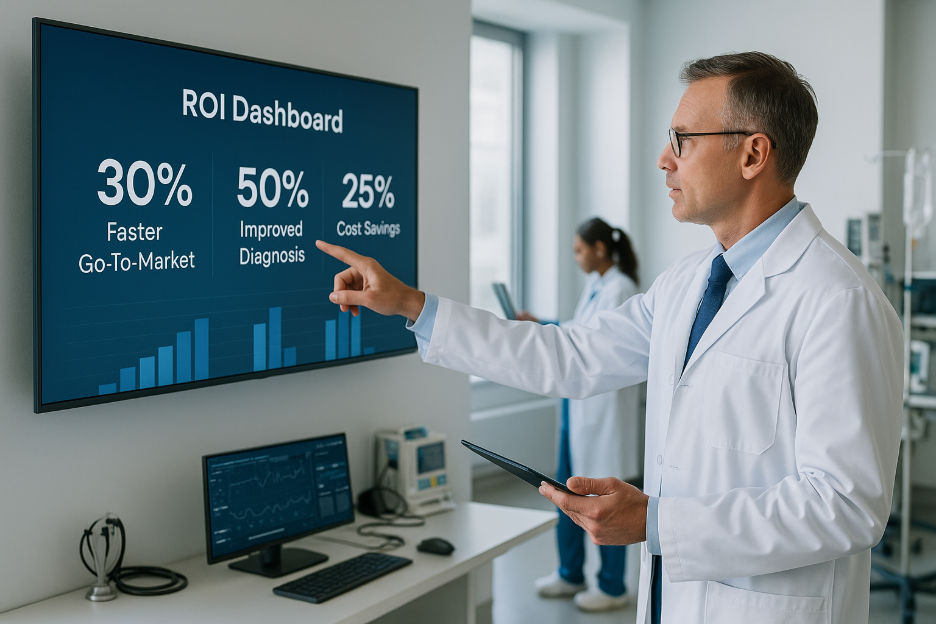
Commercial Benefits & ROI
Beyond development savings, IoT healthcare platforms deliver commercial value through:
- 30–40% reduction in hospital readmissions due to early detection of health issues
- 50% improvement in diagnostic accuracy through real-time monitoring
- Automation of routine tasks (e.g., appointment scheduling, vitals collection) reduces human workload and operational costs
- Personalized, data-driven care models are improving satisfaction levels across healthcare settings.
When systems scale across facilities, the return becomes even more prominent—delivering better health outcomes at a lower cost per patient.
Why Choose Theta Technolabs
As a trusted IoT development company in Ahmedabad and a full-stack software development company Ahmedabad trusts, Theta Technolabs delivers customized, scalable healthcare solutions.
Our expertise spans:
- IoT integration with web, mobile, and cloud systems
- Smart device interoperability
- AI-powered analytics for predictive care
- HIPAA-compliant architecture for data privacy
Whether you're a hospital network, med-tech startup, or wellness platform, we tailor our services to meet your specific operational and regulatory needs.
Conclusion
Tomorrow’s healthcare will be intelligent, connected, and personalized—driven by IoT innovation. By adopting IoT healthcare solutions, organizations can move from reactive treatment to predictive care, improving both patient lives and bottom lines.
With experience in building smart healthcare systems, Theta Technolabs helps you stay ahead in this digital healthcare revolution.
Let’s Build Smarter, Connected Healthcare Solutions
Looking to future-proof your healthcare platform with IoT?
📧 Reach out to us at sales@thetatechnolabs.com
Let’s work together to build solutions that redefine modern healthcare delivery.



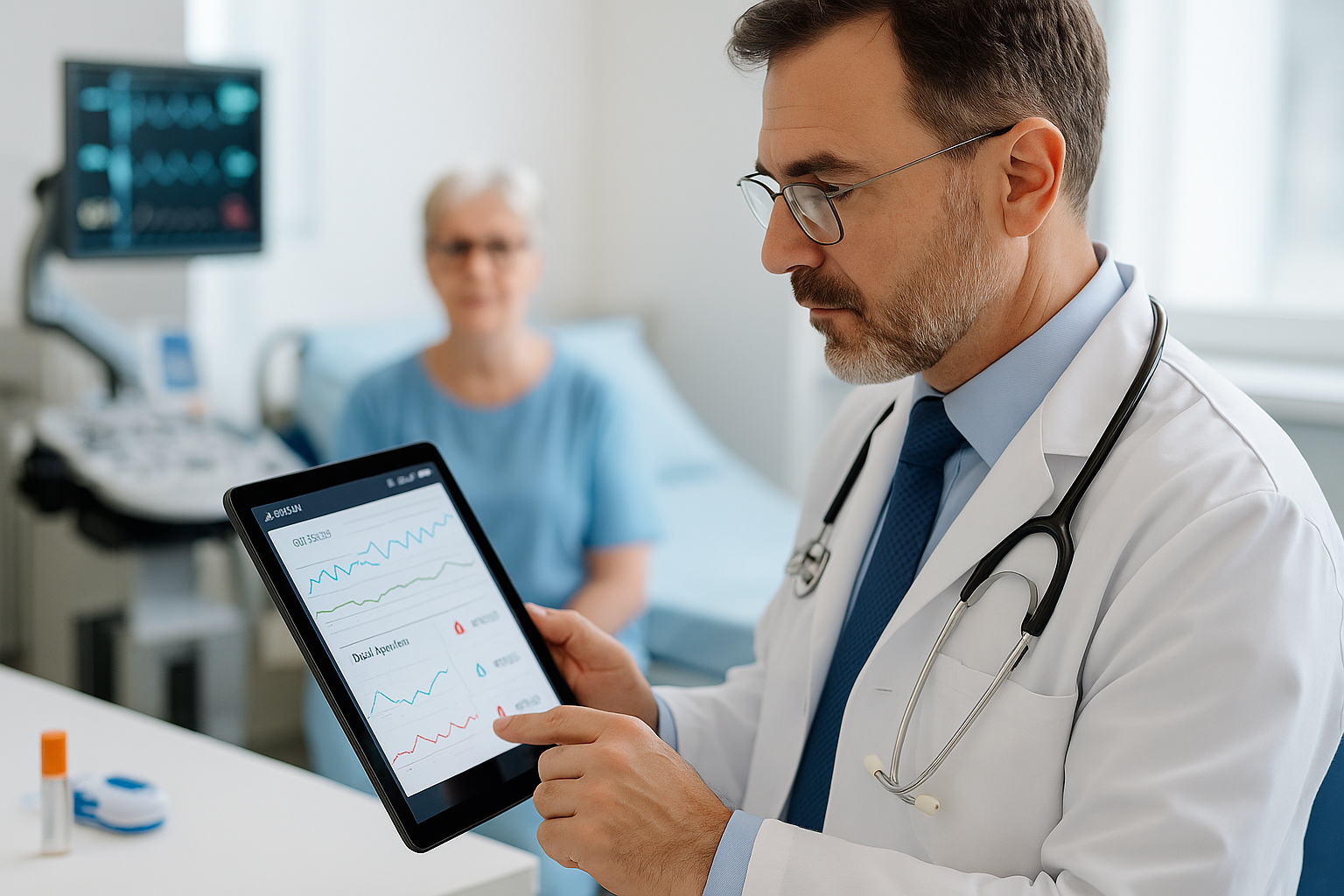












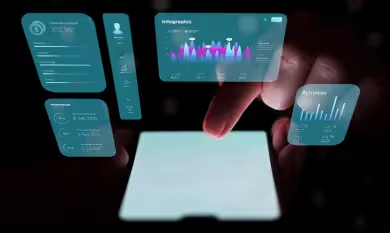

_Computer%20Vision-enabled%20Web%20and%20Mobile%20Interfaces%20for%20Mall%20Management%20in%20Dubai_Q1_In_24.avif)
_Smart%20Solutions%20for%20Healthcare_%20How%20IoT%20Development%20is%20Reshaping%20Dubai%20Hospitals_Q1_In_24.avif)
_Automated%20Checkout%20Systems.avif)
_Smart%20Manufacturing%20in%20Dubai_%20How%20AI%20is%20Driving%20Efficiency%20and%20Innovation_Q1_In_24.avif)

_Understanding%20the%20Impact%20of%20AI%20and%20Machine%20Learning%20on%20Fintech%20Web%20Apps%20in%20Dubai_Q2_24.avif)
_Explore%20the%20Best%20Cross-Platform%20App%20Development%20Frameworks%20of%202024_Q3_24.avif)
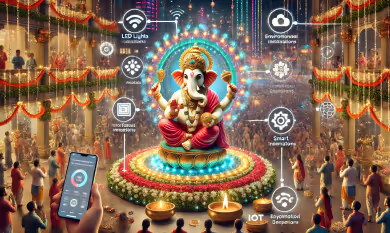

_Top%20Benefits%20of%20Cloud%20Computing%20for%20All%20Business%20Sectors_Q2_24.avif)
_Integrating%20IoT%20with%20Mobile%20Apps%20for%20Advanced%20Renewable%20Energy%20Solutions_Q2_24.avif)

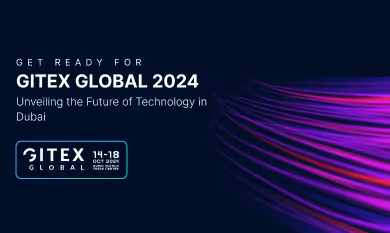
_The%20Transformative%20Role%20of%20Open%20Banking%20APIs%20in%20Fintech%20for%202024_Q3_24.avif)
_Choosing%20the%20Right%20Computer%20Vision%20Development%20Partner%20in%20Ahmedabad%20for%20Construction_Q3_24.avif)
_Node.js%20and%20Blockchain_%20A%20Perfect%20Pair%20for%20Fintech%20Innovation%20in%20Dubai_Q3_24.avif)
_How%20AI%20Development%20Companies%20in%20Ahmedabad%20are%20Transforming%20the%20Shopping%20Experience_Q4_25.avif)
_How%20IoT%20Can%20Reduce%20Energy%20Costs%20in%20Smart%20Factories_Q4_25.avif)

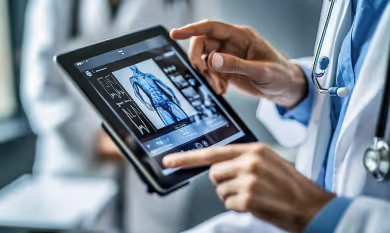

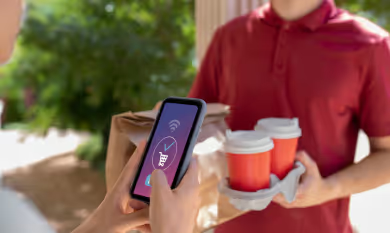








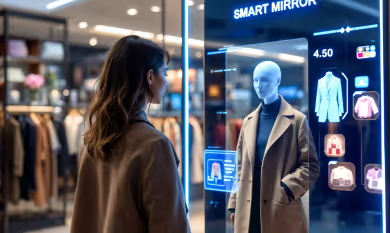
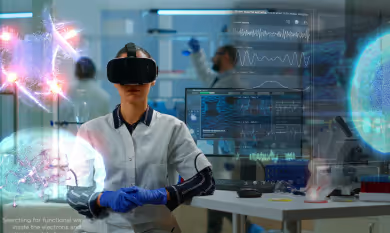
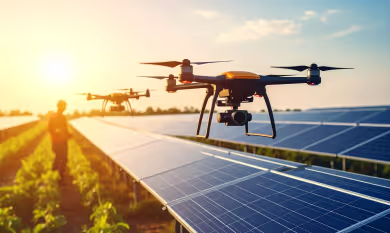








.avif)
.avif)
.avif)

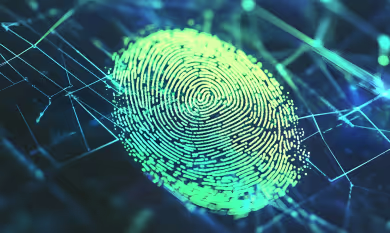



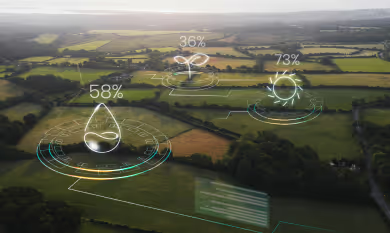




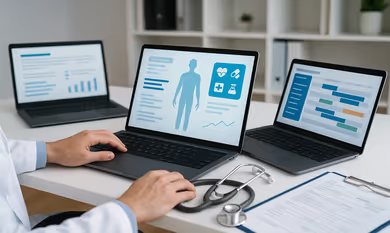




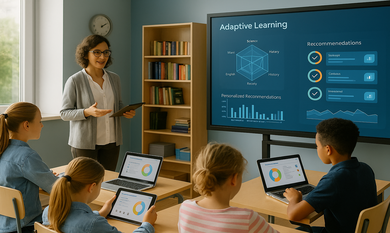

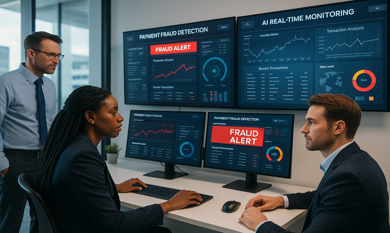

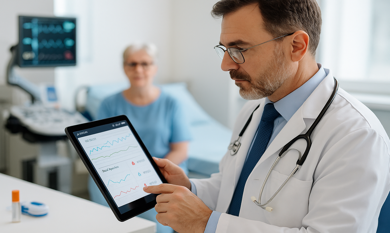
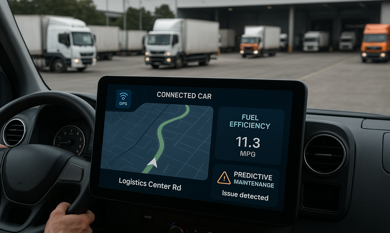
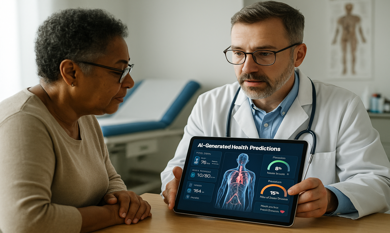
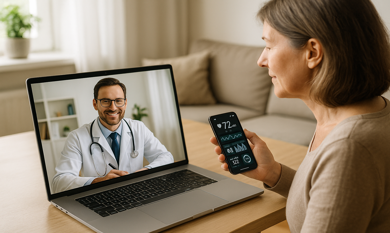
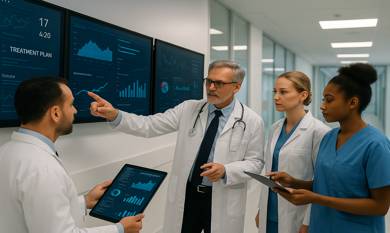

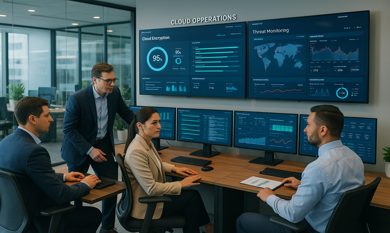

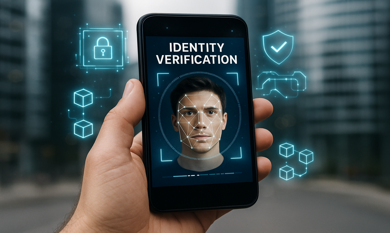



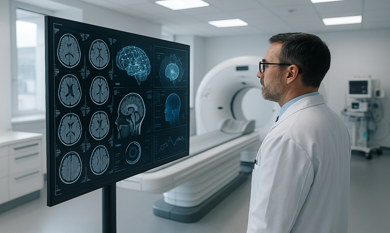
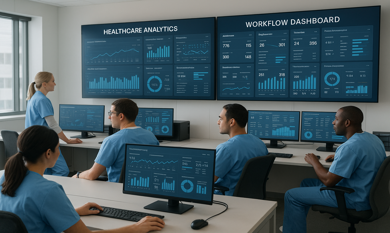




.png)


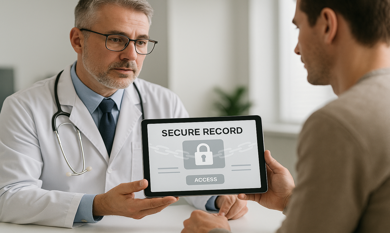


.png)
